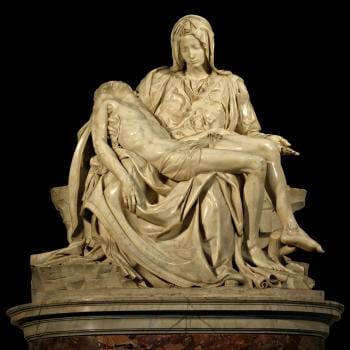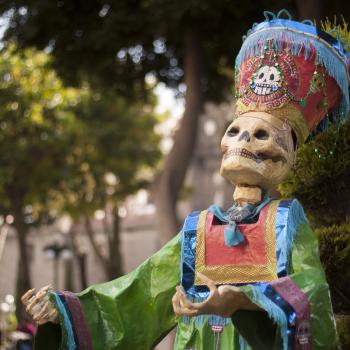My friend William Oddie is moving house. This means he has to shift shelves full of books. They must go. He asks here whether he should toss his Bertrand Russell. Oddie was a young atheist, then an Anglican priest, now a Catholic journalist. Soon after I became a Catholic I met William in England and asked if I ought to apply for the Catholic priesthood. He advised against it saying I could do much good in a different way by being a writer. So he encouraged me to be a writer even if I disregarded his advice about the priesthood.
William went on to have a distinguished career as a writer on religion in the major papers in the UK, wrote a biography on Chesterton, became editor of London’s top Catholic paper–The Catholic Herald and a friend and encourager of other writers and converts. He says much of the appeal of Russell was that he wrote with charm and humor–unlike the Russell de nos jours the shrill and unpleasant Richard Dawkins.
he [Russell] goes on to deal with various arguments for the existence of God which the Church has found convincing and demonstrates why they are not. He for a long time accepted the argument of the First Cause, he said, until one day, at the age of 18, he read John Stuart Mill’s Autobiography, and there found this sentence: “My father taught me that the question ‘Who made me?’ cannot be answered, since it immediately suggests the further question ‘Who made god?’” That, said Russell, showed him the fallacy in the argument of the First Cause: If everything must have a cause, then God must have a cause. Similarly (and, here again, the whole thing was made irresistibly attractive by Russell’s humorous tone of voice (his voice was one of the most recognizable in England), which made it so easy for him not merely to dispose of the argument from design, but to make it seem absurd. The argument, he said, was that “everything in the world is made just so that we can manage to live in the world, and if the world was ever so little different, we could not manage to live in it. That is the argument from design. It sometimes takes a rather curious form; for instance, it is argued that rabbits have white tails in order to be easy to shoot. I do not know how rabbits would view that application.”
William then goes on to discuss his reasons for converting to Christianity, and how it is that atheists can come to that decision. Read the whole thing here.












